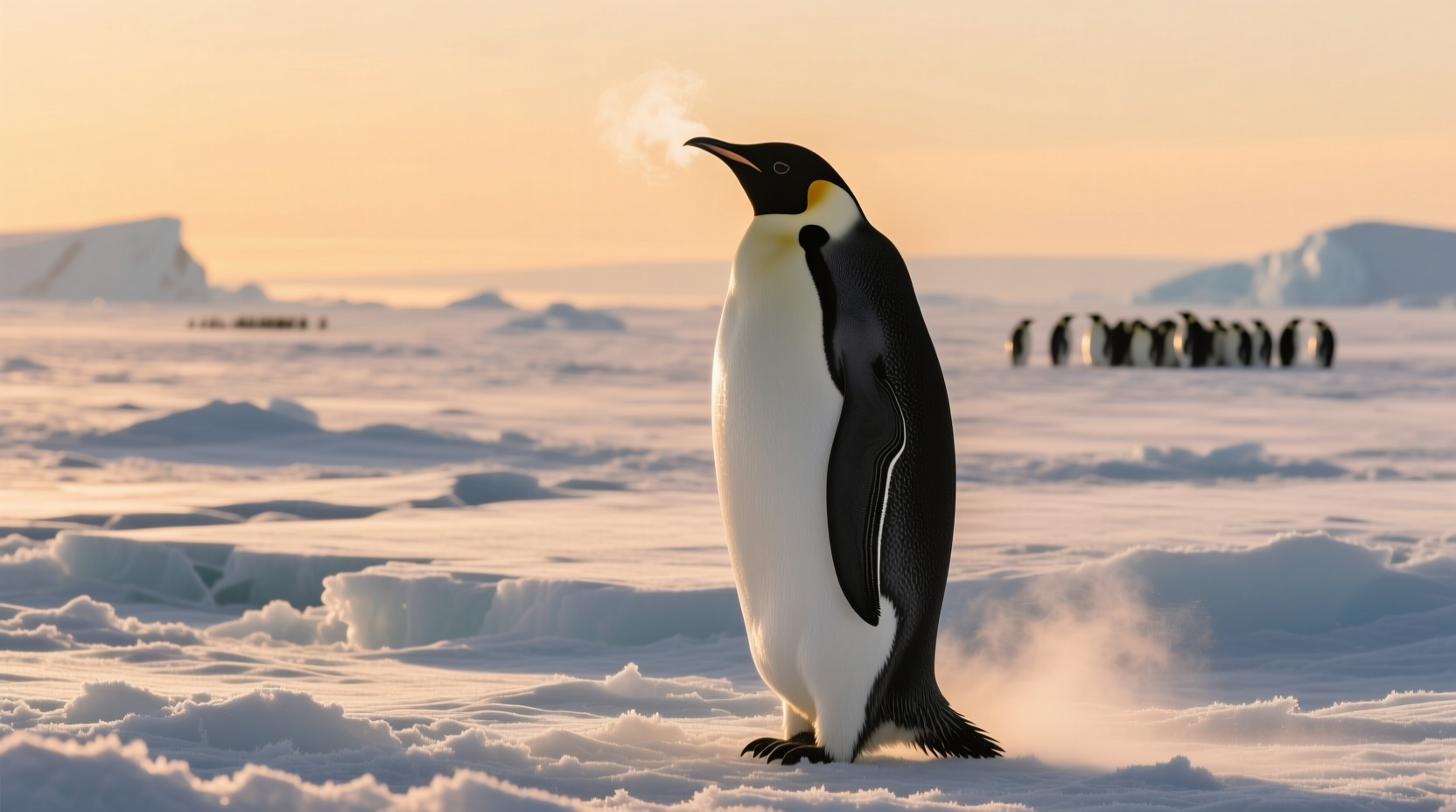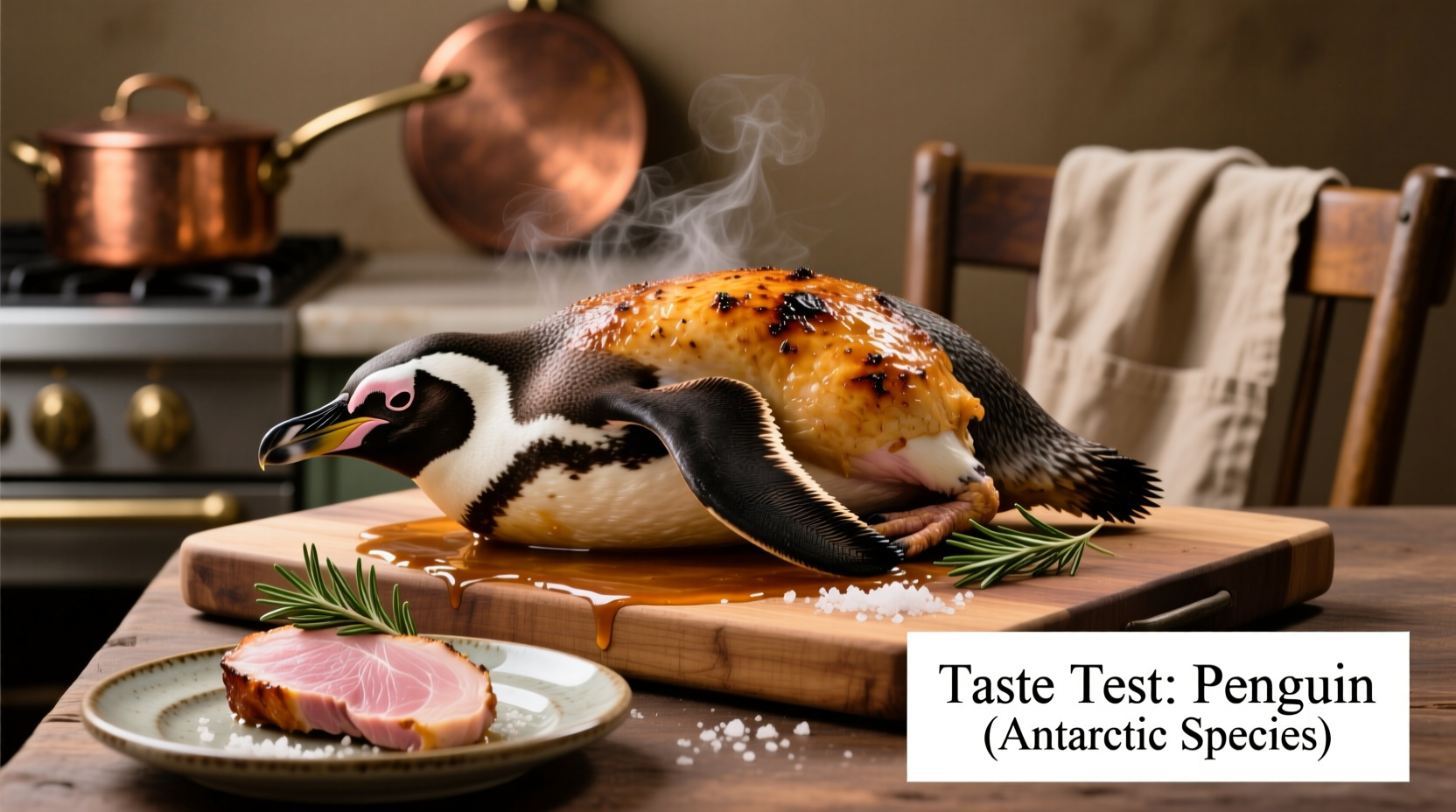Why You'll Never Taste Penguin (Legally or Ethically)
Modern conservation laws strictly prohibit penguin consumption. The Antarctic Treaty System (ratified by 54 nations) and CITES Appendix II protections classify all penguin species as vulnerable or endangered. Violating these protections carries severe penalties including $25,000 fines and imprisonment under U.S. law. Beyond legality, penguins' slow reproductive rates and climate-threatened habitats make ethical consumption impossible—they're keystone species in fragile ecosystems.
Historical Taste Accounts: Survival Necessity, Not Culinary Choice
Early 20th-century explorers like Ernest Shackleton and Robert Falcon Scott consumed penguins only during life-threatening emergencies. Their diaries reveal consistent descriptions of the meat's unappealing qualities:
| Expedition | Year | Taste Description | Source Documentation |
|---|---|---|---|
| Shackleton's Endurance | 1915 | "Strong fish oil flavor, greasy texture causing nausea" | South: The Story of Shackleton's Last Expedition (1919) |
| Scott's Terra Nova | 1912 | "Unpleasantly oily with lingering fish aftertaste" | Scott Polar Research Institute Archives (Cambridge) |
| Amundsen's South Pole | 1911 | "Edible only when desperate; required multiple boilings" | National Library of Norway Expedition Logs |
These accounts weren't culinary evaluations—they documented survival measures. Shackleton's crew reported digestive distress after consumption, while Scott's team noted the meat spoiled rapidly in Antarctic conditions. Modern food science explains this: penguins' krill-and-fish diet concentrates omega-3 oils and trimethylamine (the compound causing fishy odors), creating an intensely oily product with high spoilage risk.

Scientific Explanation: Biology Dictates Unpalatability
Penguins' physiology directly impacts taste perception. Their blubber contains 25-30% fat (compared to 5-10% in domestic poultry) with high concentrations of polyunsaturated fatty acids from marine diets. When cooked, these fats oxidize rapidly, producing rancid flavors. University of Tromsø research on seabird biochemistry confirms that Antarctic species like penguins develop stronger fishy notes than temperate seabirds due to:
- Higher krill consumption (rich in dimethyl sulfide)
- Cold-adapted metabolism storing more oils for insulation
- Lack of freshwater for cleansing meat before preparation
Satisfying Culinary Curiosity Responsibly
If you're curious about historical survival foods, consider these legal alternatives that mimic penguins' marine diet profile:
- Arctic char: Shares penguins' cold-water habitat with similar omega-3 richness but cleaner flavor
- Properly prepared muttonbird: Traditional Māori dish (tītī) using shearwater birds with regulated harvests
- Seaweed-infused fish stocks: Recreates oceanic notes without wildlife impact
For authentic historical context, explore culinary museums like Oslo's Fram Museum which displays actual expedition food rations—including penguin meat samples from Shackleton's voyage—to demonstrate why these were last-resort options.
Conservation Over Curiosity: Why Protection Matters
Current penguin populations face existential threats: Adélie penguin colonies have declined 70% since 1980 per British Antarctic Survey data. Legal protections exist because:
- Most species produce only 1-2 eggs annually
- Climate change reduces krill availability by 40% in key habitats
- Historical overhunting caused 90%+ declines in some 19th-century colonies
Support conservation through citizen science projects like Penguin Watch instead of pursuing illegal consumption.
Frequently Asked Questions
Is penguin meat illegal to eat everywhere?
Yes. All 18 penguin species receive international protection under CITES and the Antarctic Treaty System. Even in countries without specific penguin laws, importing protected species violates wildlife trafficking statutes like the U.S. Lacey Act.
Did any cultures traditionally eat penguins?
No indigenous Antarctic cultures existed to develop penguin cuisine. Some sub-Antarctic island groups like the Yaghan people of Tierra del Fuego occasionally consumed penguins during famines, but never as staple foods due to the birds' scarcity.
Would farmed penguin meat taste better?
Commercial penguin farming is impossible—these birds require specific ocean currents and krill densities. Captive breeding programs like those at SeaWorld exist solely for conservation, with strict prohibitions against consumption.
Why do historical accounts mention penguin eggs being edible?
Explorers preferred eggs because boiling removed fishy flavors. Shackleton noted eggs tasted "like rubbery fish" but were nutritionally vital. Modern protections now extend to all breeding materials under the Antarctic Conservation Act.











 浙公网安备
33010002000092号
浙公网安备
33010002000092号 浙B2-20120091-4
浙B2-20120091-4